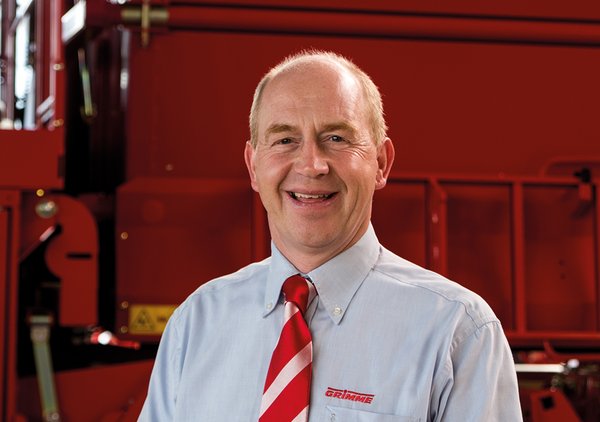 Download this article in magazine layout
Download this article in magazine layout
- Share this article
- Subscribe to our newsletter
“Farmers have to get organised”
Mr Nordmann, why is your company engaging in the German Food Partnership?
The GPF offers Grimme the opportunity to combine business interests with a development objective. Within this partnership, we can contribute our expertise for smallholders in Kenya and Nigeria and thus engage in social issues. At the same time, the two countries are becoming interesting as new markets. With Africa’s present population of one billion set to double by 2050, we feel that the mechanisation of agriculture is indispensable to maintaining food supplies.
What are your current activities in the Potato Initiative Africa?
Right now, we are demonstrating machines for smallholder potato growers in Kenya and Nigeria, the aim being to show the advantages of mechanisation in this area. For example, post-harvest losses and damage caused during harvesting can be reduced by more than 30 per cent if potatoes are harvested with a machine instead of a hoe or by hand. Also, the right tillage method and accurate planting can significantly enhance yields.
Which further steps are planned for the project?
The next move will be to provide machinery via machinery rings, in the course of which the farmers get organised. Each of them invests in a machine, e.g. a potato planter or a bed former. The machines are then shared. The cost of each machine is calculated on a per hectare basis and paid to its owner. We then train the farmers in using and seeing to the maintenance of the machines.
What do you think the greatest challenge is for mechanisation in a country like Kenya?
We believe that the major challenges in Kenya are, above all, the structure and organisation of smallholders. It’s not much use supporting only some of the farmers and leaving out the rest. This is why it is so important for farmers to get organised. Fields need to be accessible, and diseases from neighbouring fields that are not supporting the project must not spread to the fields of the GFP farmers. Here, a single individual can easily wipe out success achieved by many. For us as a medium-sized German business, it is a great challenge to work with the different African cultures and professionally support the projects from where we are. This is why Grimme also has local staff assisting us in the respective countries.
What counts in training the smallholders?
Training is indeed a key factor, especially the right handling and maintenance of the machinery, and in particular when the project has been concluded. This is the only way to achieve a sustainable impact. Training can either take place in groups on demonstration farms or in so-called outgrower schemes, where a commercial farmer supports smallholder cultivation. The smallholders can purchase seed, fertiliser and pesticides. They can also use the machines without having to invest in them, which gives them access to modern cultivating methods. In addition, there is the option of joint marketing.
Do women also have access to the training measures?
Women are the backbone of African agriculture. They are integrated and trained throughout the entire value chain, and we also train them in using the machines.
What is the role of the public sector in mechanisation?
Ultimately, the public sector, i.e. the governments, provides the link between civil society and the local enterprises. Particularly in Africa, it is important to involve local governments and administrations and establish the requirements they perceive and how our projects can be integrated in government measures. A project can only be successful in the long run if everyone is convinced that it is useful and acts in concert. And only then will the project receive the necessary support.





Add a comment
Be the First to Comment